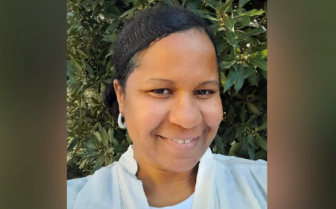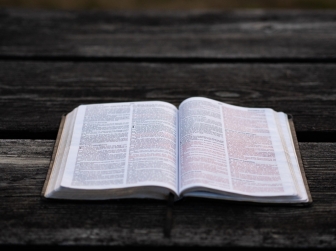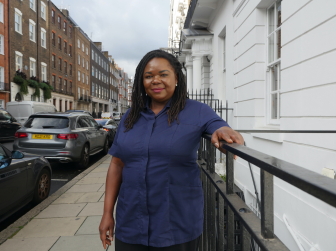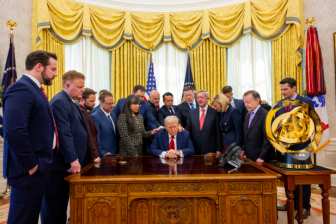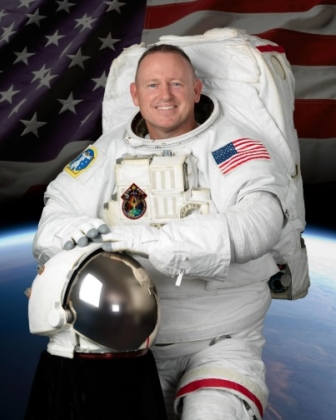The General Secretary of the World Council of Churches (WCC), Rev Dr Samuel Kobia has joined celebrations this week of India's 60th anniversary of independence.
|PIC1|India is a "viable and vibrant democracy" of "manifold diversity" which has become a "major global power" marked by rapid economic growth and economic expansion, according to Dr Kobia.
Addressing a gathering in Chennai this week, he indicated his regret at the nation's contemporary "setbacks of poverty and violence, casteism and fundamentalism of many sorts".
Kobia was speaking in Chennai at a seminar convened by the National Council of Churches in India and the Gurukul Lutheran Theological College in the context of the churches' ongoing celebration of the anniversary of independence. He addressed the challenges facing the ecumenical movement in the world and their implications in modern India.
The ecumenical movement, affirmed Kobia, seeks to "uphold the sanctity, integrity and dignity of the life of all people", while carrying an "alternative vision of the world, guided by the values of justice and peace".
The search for "the meaning and purpose" of being a part of it in a "context of complex realities" is therefore not "just an existential need because our institutions are in crisis", he continued, but a spiritual thrust to "play a creative role in shaping this ever-changing world, and in keeping it just and humane".
In such a context, Kobia affirmed, the first challenge to churches is to "hear the voices" of "those who are abused, the vulnerable, of women, children, refugees, of unemployed youth and migrant workers, of those suffering and dying of HIV/AIDS and other diseases, the faint voices of women and children who are trafficked, of the Dalits and Adivasis" (people of lower castes formerly known as 'untouchables' and indigenous peoples, respectively). In so doing, churches must look at their ecumenical vocation as a "vocation of advocacy for life and justice".
Acknowledging that "Indian churches are predominantly composed of the rural poor, who also happen to be from the margins of Indian society", Kobia suggested that this identity needs to be even more "owned and affirmed" by the churches. Christians must challenge the misuse and abuse of power in order to become an "alternative community".
For all this to happen, we "need to recognise the contributions of many others who are involved in similar pursuits with or without any religious calling or affiliation", Kobia added. Commending the pioneering work done in this area by the Indian churches, he suggested that, "interfaith dialogue and cooperation can be seen as an instrument of life."
Earlier in the day, Kobia had addressed the Executive Committee of the Church of South India (CSI) at the church headquarters in Chennai. One of the WCC member churches in the country, the CSI is celebrating its own 60th anniversary under the theme "Rejoice! Growing together in Christ. Celebrate! Building Communities of Hope".
"In 1947, in a world in tumult following the Second World War and within the context of India becoming an independent nation, the Church of South India dared to become a united church," recalled Kobia.
He highlighted three reasons why the birth of the CSI was and still is regarded as a "remarkable church union": the CSI's "radical vision of unity", in which "divided denominations have 'died' to their separate identities in order to 'rise' together into a single, new, united church"; a "radical vision of the gospel in its local context" which allowed for its liberation from the "cultural forms of Europe and North America" and its taking an "indigenous South Indian form"; and a "radical healing of ecclesiological divisions" which made it possible to "unite the sacramental episcopacy with Reformed and other forms of church order".
"We celebrate your vision in uniting, and your courage in meeting the challenges of living out your unity in the changing and challenging world of today", Kobia said.
Among the main challenges facing the church today, Kobia mentioned forming a "truly inclusive union, not only theologically or in worship, but humanly as well", so as to be able to help the healing of divisions within the society. The church also meets challenges in "witnessing to the gospel promise of abundant life for all in a society shaped increasingly by economic globalisation", and "responding to a growing secularism" within Indian culture.
On 17-18 February Kobia will be the chief guest and a main speaker at the 112th Maramon Convention of the Mar Thoma Syrian Church of Malabar, which takes place annually at Maramon, Kerala, and is the largest Christian gathering in Asia.
related articles
European Parliament Opposes Dalit Discrimination
European Parliament Opposes Dalit Discrimination
BBC Poll Highlights Concerns of Caste as a 'Barrier to Social Harmony'
BBC Poll Highlights Concerns of Caste as a 'Barrier to Social Harmony'
World Ecumenical Head to Address Largest Christian Gathering in Asia
World Ecumenical Head to Address Largest Christian Gathering in Asia
News
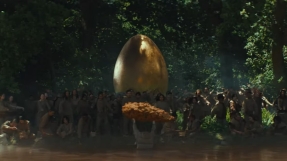
KFC gravy baptism advert sparks controversy
KFC's controversial gravy baptism was at least done via total immersion
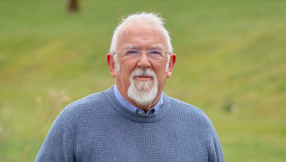
Retired pastor challenges abortion buffer zones law
A retired pastor who held a service in an abortion buffer zone is challenging the prosecution and the law itself

The Spring Statement is devastating for disabled people
Please pray. Please write to your MP about these things. And please, check on any disabled friends to see how they are coping with what is unfolding at the moment.
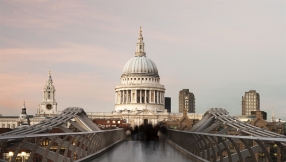
US study claims two in five Brits raised Christian no longer believe
A new report from the Washington-based Pew Research Center suggests that Britain’s religious identity is undergoing a transformation
